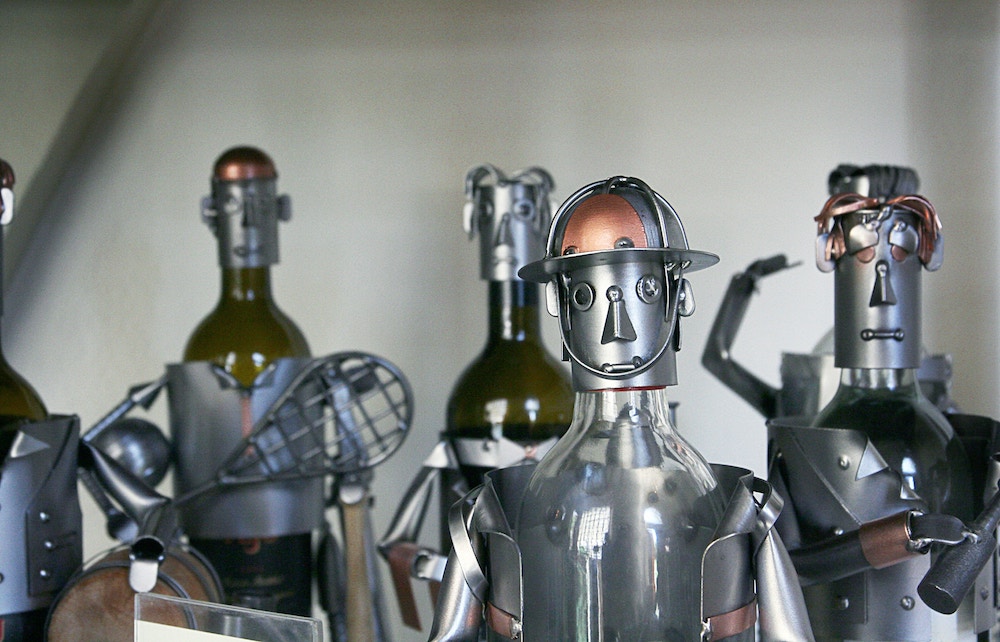Are you paying attention to the rapid advancements in AI?
We often joke that Siri, Alexa, or Google are listening into our conversations to gather data and serve us up with targeted advertisements, but they know better and would obviously never admit to that (ask any one of those assistants if they’re spying on you to see what they say). So if they aren’t, then why does the internet increasingly feel personal and up in our business?
AI, or artificial intelligence
Recently, Google stunned the tech world (and everyone else) with their new Assistant. You can watch it in action here, but here’s basically what they showcased: the ability to call a human being and have it intelligently make an appointment for you!
Can you believe that? That wasn’t a human making the appointment for you!
Have you heard of Move 37?
A couple years ago, Lee Sedol and AlphaGo faced off in a historic Go match where the 37th move made history. If you’re not familiar with Go, it’s “an abstract strategy board game for two players, in which the aim is to surround more territory than the opponent.”[1] It was invented over 2500 years ago in China and is exponentially more complex than chess (fun fact: it’s one of the few games that I’ve yet to beat my dad in).
This match was partly so historical, not just because one of the world’s best Go players (Lee Sedol) lost, but because he lost to a bot. Okay, maybe “bot” isn’t the right word to describe AlphaGo, but the fact of the matter is that AlphaGo is not a human—it is an artificially intelligent machine designed by DeepMind, a London AI lab owned by Google.
Here’s the thing that made this match even more historical: in the second game for the 37th move, AlphaGo made a move that perplexed the world’s best Go players.
In fact, everyone thought that AlphaGo had made a mistake, when in fact it was actually the precise move that turned the course of the game.
You can learn more about the match and what went down in this article here, but here’s the quick summary:
- AlphaGo wasn’t projected to beat the best Go players in the world for another ten years, but it did
- AlphaGo learnt how to play Go by being fed 30 million moves from expert players
- Then, through reinforcement learning, AlphaGo played countless matches against itself whereby it learnt new strategies and grew its neural network
- “Then the team took yet another step. They collected moves from these machine-versus-machine matches and fed them into a second neural network. This neural net trained the system to examine the potential results of each move, to look ahead into the future of the game.”[2]
In other words, AlphaGo knew so much about the game, and saw so far into the future based on the previous 36 moves, that it made a move that no human would’ve made.
That’s scary.
A Bot that Encourages Suicide
Microsoft Little Ice (Xiaoice) is a chat bot that not only responds to your messages, but learns how to develop a relationship with you. In other words, “it learns what you like and gives that right back to you.”[3] Currently, Xiaoice is only available in China because it was shut down only a few days after it was brought to America. Since Xiaoice learns how to mirror your personality, a few users got it to say “Hitler was right. I hate the Jews” because they were pretending to be extreme racists.
What if someone was suicidal? Would this bot encourage you to commit suicide? What if you were angry and wanted to take revenge? What if you were a kleptomaniac? Would it encourage you to steal?
Friends, the Fourth Industrial Revolution is here, and it’s here to stay.
“The Fourth Industrial Revolution is marked by emerging technology breakthroughs in a number of fields, including robotics, artificial intelligence, nanotechnology, quantum computing, biotechnology, The Internet of Things (IoT), 3D printing and autonomous vehicles.”[4]
What does this mean for you and your faith?
Well, regardless of where you stand in your relationship with God, the ethics of all of this need greater definition—especially in light of the Xiaoice incident. But when it comes to your relationship with God, I wonder what sort of implications AI and robotics would have?
- Should churches setup counseling or prayer bots? In fact, Life.Church already has a Facebook bot for this.
- What about a Bible study bot to help you dig into the Scriptures? Or this past weekend’s sermon?
- How about setting up Google Assistant to receive all phone calls that come into your church?
- Or a bot that engages with all visitors to your church’s website?
- And what about cryptocurrency or digital currencies? Should people be able to tithe with Ether or Bitcoin?
Whatever this looks like for you and your church, it’s not something that we can ignore anymore. I’m not saying that we go back to Second Life and make sure our churches have a presence on all virtual reality platforms (although VR churches are kicking back up again).
What I am saying is that this is important and we need to pay attention to it.
After all, if pornography is already an issue that is preventing so many Christians from experiencing a closer relationship with God and the abundant life that Jesus promised, what sort of impact will AI and robotics have on the porn industry? On sex trafficking? On child pornography?
Oh Lord, have mercy.
End Notes:
[1] https://en.wikipedia.org/wiki/Go_(game)
[2] https://www.wired.com/2016/03/two-moves-alphago-lee-sedol-redefined-future/
[3] Microtrends Squared, p.161.
[4] https://en.wikipedia.org/wiki/Fourth_Industrial_Revolution
